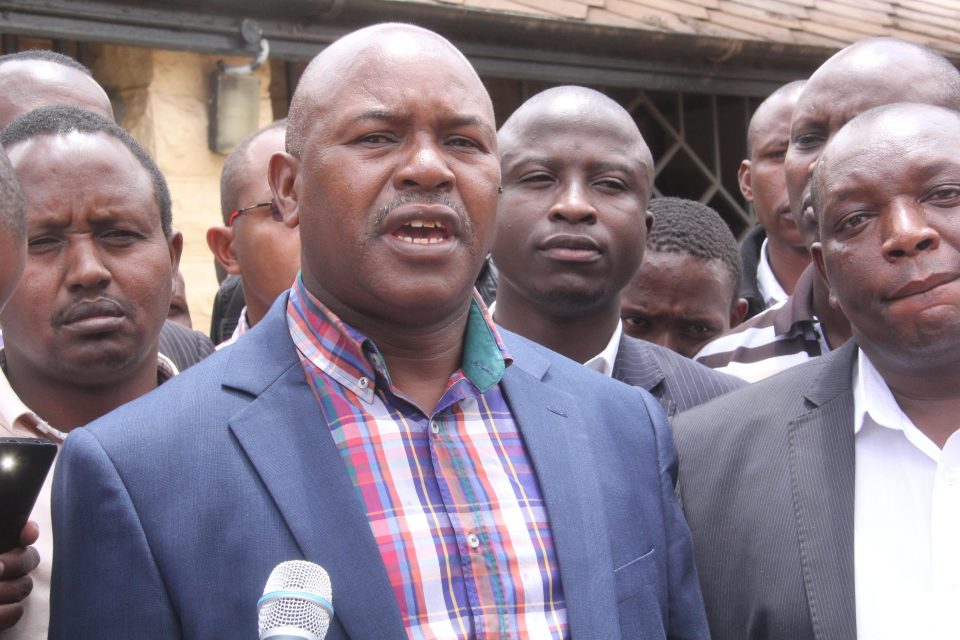Former governor opposes formation of a third-tier government, saying devolution should not move upwards
By Jonathan Teikan
Building Bridges Initiative (BBI) principal proponent Raila Odinga, who is also the leader of the ODM party, was forced to step in to quell mistrust and disunity among Maa leaders ahead of the Saturday rally in Narok.
It is now apparent that the Maa leaders will present a joint harmonised proposal to be unveiled during the rally.
The draft, it is hoped, will incorporate various proposals from different individuals to come up with a single document from the Maa speaking communities, just like has been the trend in previous BBI rallies.
We recently caught up with former governor David Nkedianye and sought to know what proposals he would want to be included in the BBI report.
To begin with, Nkkedianye told Kajiado Star that he supports the idea of an expanded executive, saying that it guarantees inclusivity. He has called for the formation of a government with a powerful prime minister, who will run the government, and a president who will be the symbol of national unity. The two positions, he says, should come with their deputies.
“That way, everyone feels included in government and campaigns will cease being a matter of life and death,” he said. “As things, stand people equate State House with heaven; if “their person” fails to get the presidency, they say they are finished.”
An expanded executive, he argues, will ease pressure during campaigns and reduce violence during election periods as the do-or-die element would have been eliminated.
He is however opposed to the idea of a third-tier government being floated by some politicians. “A third tier government is not necessary at all; in any case, devolution should be entrenched downwards to the wards and villages and not the other way round,” says Nkedianye.
Proponents of a third-tier government are calling for administrative positions, which bring together a number of counties to be headed by a “super governor”. This position is seen as a way of giving governors who are already in their second and final terms a soft landing.
Nkedianye also supports the proposal of increasing resources to counties to 45 per cent of the national budget, “ili mwananchi apate nafuu” (the common man will breathe a sigh of relief).
He proposes that areas inhabited by pastoralists, such as Kajiado, should be provided with a livestock fund to shield herders from the effects of climate change. “These changes often throw our people off balance,” he explained. “The flip side of the heavy rains that have been witnessed will be prolonged drought.”
Such a fund, he explains, should provide pastoralists with loans that would, among other things, enable them prepare hay, which should come in handy during the dry season. That fund, he adds, would also go towards the construction of abattoirs, which should have the capacity to process leather products from hides and skins, as well harness biogas production from animal waste.
Another proposal by the former governor has to do with spatial land planning. “At the moment, land in Kajiado is too fragmented,” he says. “Good spatial planning will safeguard land that will be put to different uses.”
Spatial planning ensures that there is land set aside for residential, industrial and grazing purposes. Seeing as Kajiado is renowned for juicy nyama choma beloved of many people, Nkedianye says that grazing land where such animals are reared should be protected from encroachment. “That nyama will taste different if the land on which these animals graze gets too fragmented,” he added.
He also calls for inclusivity of all people living in cosmopolitan areas. “That way, our youth will be assured of jobs wherever they live, based on merit,” he says. “We do not wish a Maasai youth living in Ukambani to be denied an employment opportunity based on his ethnicity. Similarly, a Kamba youth should not be denied employment in Kajiado on the same basis.”
Corruption, he says, needs to be dealt with firmly. “Theft of public resources brings poverty to the people. Office holders should be held accountable for their actions and this is where MCAs come in; they need to play their oversight roles effectively,” explains Nkedianye.
